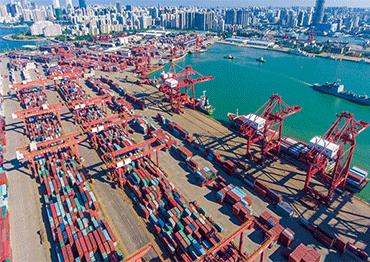China’s State Council issued on June 1 a general plan to transform Hainan Province into a free trade port, which pledges to realize free trade, free investment, free transportation, free entry-departure and free trans-border capital flows in China’s southern island province.
Hainan is to set up a separate customs bureau by 2025 and before that, it will gradually exempt tariffs from all imported goods that are not specified on China’s negative list, unless they are transshipped to other parts of the Chinese mainland. Products made from imported materials will still be tariff exempt as long as the finished product has a value-added price of 30 percent or above.
The plan prioritizes free investment as key to helping Hainan connect to the world and boosting the local economy. Hainan’s governor Shen Xiaoming said at a press conference in Beijing on June 8 that enterprises entering Hainan are allowed to engage in any business so long as it is not illegal or on the negative list, and local government approval will not be required. Those engaged in industries encouraged by the government will be eligible for tax reductions.
The government values tourism, high-tech industries and modern services most, the plan states.
To promote tourism on the island, the document grants both Hainan residents and tourists a tariff-free quota of 100,000 yuan (US$14,165) for purchases in Hainan, over three times the existing quota which was set in 2018 when Hainan was defined as a free trade zone.
The document also proposes greater opening-up in key fields such as finance, medical care, education and culture. It pledges to open the telecommunications sector, support foreign investors engaged in bonds, futures and funds to set up independent or joint ventures on the island, and allow higher vocational schools and international universities specializing in engineering, science, agriculture and medicine to set up independent schools in Hainan.
The plan emphasizes risk control and management, and requires the provincial government to institute policies and measures against acts that harm national security and the socialism institution, and against smuggling and corruption.
Experts said that many of the opening-up policies mentioned in the plan are unprecedented on the mainland, and this shows the government’s firm determination to attract talented professionals to Hainan. It seeks to eliminate its current reliance on the real estate industry which experts believe will drag down the local economy.
Lin Nianxiu, deputy director of the National Development and Reform Commission, said Hainan will provide an important case study for the central government to make China more open and marketized as well as promote globalization. He said that the plan is not intended to make Hainan another Hong Kong, but rather to make the most of its uniqueness and local resources.

 Old Version
Old Version